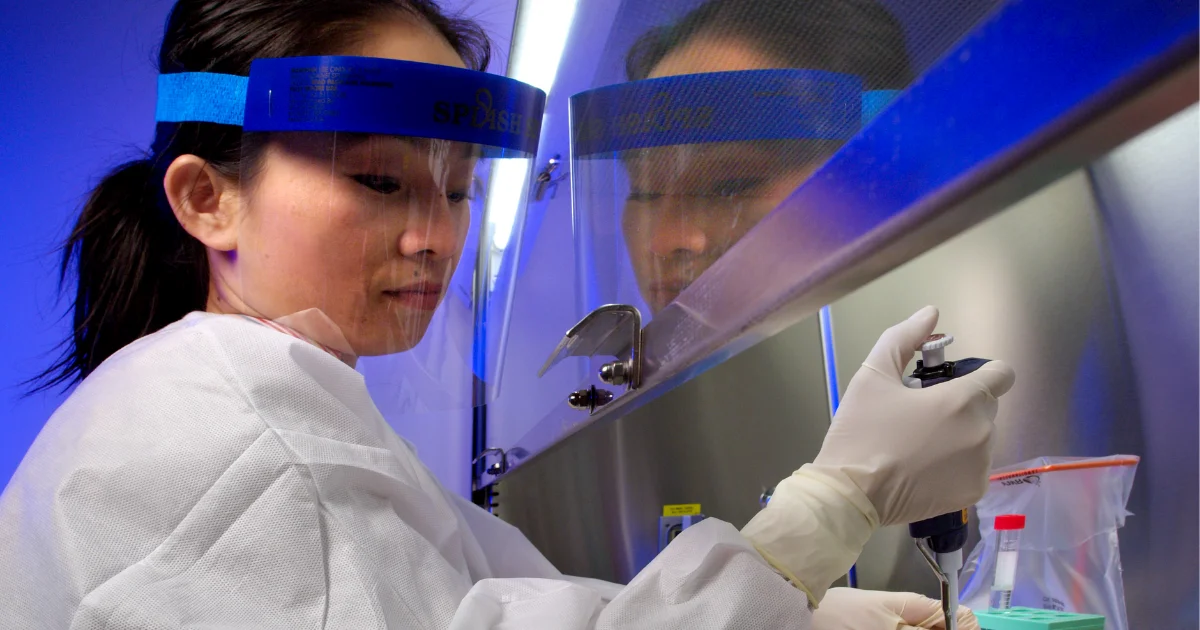In the rapidly evolving landscape of biopharmaceuticals, the development and manufacturing of biologics stand out as a beacon of innovation and hope for patients worldwide. These complex molecules, derived from living cells, have the potential to treat a wide range of diseases, from cancer to autoimmune disorders.
However, the path from the lab bench to the patient’s bedside is fraught with challenges, not least of which is ensuring the safety, purity, and efficacy of these biological products. This is where the critical role of analytical services comes into play.
Biologics are inherently more complex than small-molecule drugs, with their efficacy and safety closely tied to their intricate structures and the processes by which they are produced. Any slight variation in the manufacturing process can lead to significant changes in the final product, potentially impacting its therapeutic effectiveness or safety profile.
Therefore, rigorous analytical testing is essential throughout the development and production phases to ensure that each batch meets the stringent standards required for biological products.
Analytical services encompass a wide range of techniques and methodologies designed to characterize the biological product in detail. These include but are not limited to, assays to determine the potency and purity of the product, analyses to identify and quantify impurities, and studies to assess the stability of the biologic under various conditions. The goal is to build a comprehensive understanding of the product’s characteristics and how they may vary under different production scenarios.
Must Read: Best Mobile App Analytics Tools (Free Included)
One of the key aspects of analytical services in biologics is the development of robust analytical methods that can reliably measure the critical quality attributes of the product. This is no small feat, given the complexity of biologics and the need for highly sensitive and specific assays.
The development of these methods requires a deep understanding of both the product and the underlying science, as well as a significant investment in time and resources.
For those looking to delve deeper into the world of biologics and the pivotal role of analytical testing, biologics analytical services offered by specialized companies provide an invaluable resource. These services not only support the development and manufacturing of safe and effective biologic products but also help navigate the regulatory landscape, ensuring compliance with the stringent requirements set forth by health authorities.
The importance of analytical services in the biopharmaceutical industry cannot be overstated. As the demand for biologics continues to grow, so too does the need for sophisticated analytical capabilities. This has led to significant advancements in analytical technologies and methodologies, enabling more precise and accurate characterization of biologics than ever before.
From cutting-edge mass spectrometry techniques to innovative bioassays, the field of analytical services is constantly evolving to meet the challenges of biological development and manufacturing.
But why is this so crucial, you might ask? The answer lies in the very nature of biologics themselves. Unlike traditional drugs, which can often be synthesized through well-defined chemical processes, biologics are produced using living cells.
This introduces a level of variability and complexity that demands a thorough understanding and rigorous control of the manufacturing process. Analytical services provide the tools and expertise necessary to achieve this control, ensuring that each batch of product is consistent, effective, and safe for patient use.
Engaging with the latest developments in analytical services and biologics is essential for anyone involved in the biopharmaceutical industry. For those interested in staying informed, resources such as Nature Biotechnology and Science Daily’s Biotechnology News offer a wealth of information on the latest research findings and technological advancements.
See Also: How Is Data Analytics Used in Manufacturing?
Conclusion
The role of analytical services in the development and manufacturing of biologics is both critical and multifaceted. As we continue to push the boundaries of what is possible in medicine, the need for advanced analytical capabilities will only grow.
Encouraging dialogue and collaboration among scientists, regulatory bodies, and the biopharmaceutical industry is essential to harness the full potential of biologics in improving patient outcomes. Let’s continue to explore and invest in the analytical services that make this possible, shaping a future where diseases are no longer insurmountable challenges but manageable conditions.





















